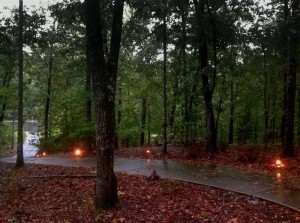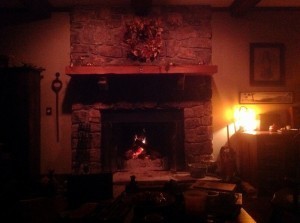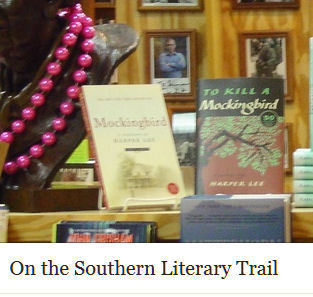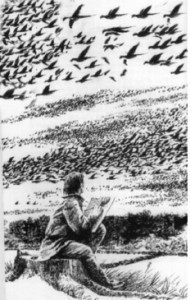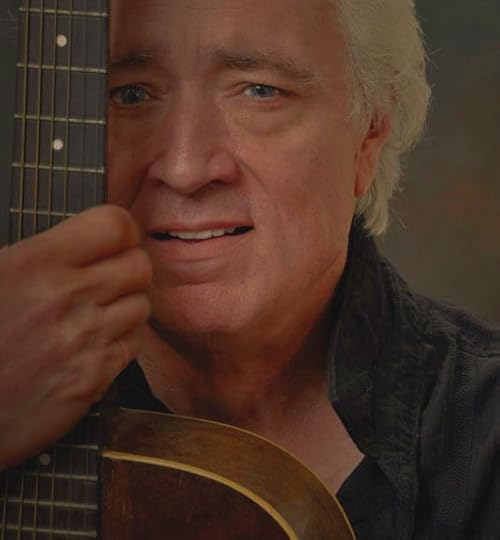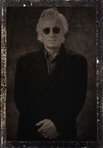Randy Thornhorn's Blog, page 9
September 22, 2014
Monday Thunder ...
Monday Thunder
September 21, 2014
A Memorable Thornhorn Weekend
Thanks girls! I'll never forget you and all them good times we had.
(As some of you may recall, Nixburg is birthplace of Daddy Brass.)
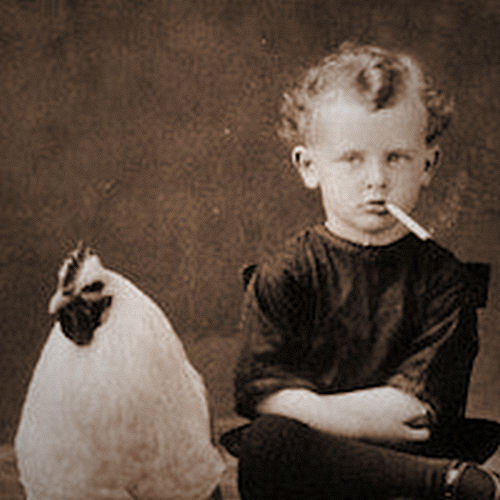
forever yours and yours,
Randy

An Unforgettable Thornhorn Weekend
A couple of value-added items I picked up this weekend at the Nixburg, Alabama Home For Wastral This And Thats. The graveyard nursing staff on duty were never less than courteous and well-informed and were kind enough to let me use my Diner’s Club when I discovered my PayPal debit card was temporarily tapped out.
Thanks girls! I’ll never forget you and all them good times we had.
(As some of you may recall, Nixburg is birthplace of Daddy Brass.)
September 19, 2014
Southern Lit Lovers Wanted “On The Southern Literary Trail”
Are any of you members of Goodreads and lovers of Southern Literature like I am?
If so, I would like to invite you to join the Goodreads book group “On The Southern Literary Trail“ where folks gather to muse and discuss all things related to Southern fiction old and new.
AND, I have had the honor to have my novel The Kestrel Waters nominated for one of the two November book reads in “On The Literary Trail”. I have to thank moderator Laura for that kindness, and it’s humbling to even be named amidst such illustrious authors in this field. Voting for the November ballot is in the next few days.
We are trying to get new members to join and engage, so if you are interested, you can find the group at this web address:
https://www.goodreads.com/group/show/63470-on-the-southern-literary-trail
September 4, 2014
On A Monument To The Pigeon
“His love…required only free sky, and the will to ply his wings. To love what was is a new thing under the sun, unknown to most people and to all pigeons.”
We meet here to commemorate the death of a species. This monument symbolizes our sorrow. We grieve because no living man will see again the onrushing phalanx of victorious birds, sweeping a path for spring across the March skies, chasing the defeated winter from all the woods and prairies of Wisconsin.
Men still live who, in their youth, remember pigeons; trees still live that, in their youth, were shaken by a living wind. But a few decades hence only the oldest oaks will remember, and at long last only the hills will know.
The plaque on the Passenger Pigeon Monument. Artist Owen Gromme sketched the bird. Ornithologist A. W. Schorger drafted the inscription: “Dedicated to the last Wisconsin Passenger Pigeon shot at Babcock, Sept. 1899. This species became extinct through the avarice and thoughtlessness of man.” Reproduced with permission of the Wisconsin Society for Ornithology.
The plaque on the Passenger Pigeon Monument. Artist Owen Gromme sketched the bird. Ornithologist A. W. Schorger drafted the inscription: “Dedicated to the last Wisconsin Passenger Pigeon shot at Babcock, Sept. 1899. This species became extinct through the avarice and thoughtlessness of man.” Reproduced with permission of the Wisconsin Society for Ornithology.
There will always be pigeons in books and in museums, but these are effigies and images, dead to all hardships and to all delights. Book-pigeons cannot dive out of a cloud to make the deer run for cover, nor clap their wings in thunderous applause of mast-laden woods. They know no urge of seasons; they feel no kiss of sun, no lash of wind and weather; they live forever by not living at all.
Our grandfathers, who saw the glory of the fluttering hosts, were less well-housed, well-fed, well-clothed than we are. The strivings by which they bettered our lot are also those which deprived us of pigeons. Perhaps we now grieve because we are not sure, in our hearts, that we have gained by the exchange.
It is a century now since Darwin gave us the first glimpse of the origin of species. We know now what was unknown to all the preceding caravan of generations: that man is only a fellow-voyager with other creatures in the Odyssey of evolution, and that his captaincy of the adventuring ship conveys the power, but not necessarily the right, to discard at will among the crew. We should, in the century since Darwin, have achieved a sense of community with living things, and of wonder over the magnitude and duration of the biotic enterprise.
For one species to mourn the death of another is a new thing under the sun. The Cro-Magnon who slew the last mammoth thought only of steaks. The sportsman who shot the last pigeon thought only of his prowess. The sailor who clubbed the last auk thought of nothing at all. But we, who have lost our pigeons, mourn the loss. Had the funeral been ours, the pigeons would hardly have mourned us. In this fact, rather than in Mr. Vandevar Bush’s bombs, or Mr. DuPont’s nylons, lies objective evidence of our superiority over the beasts.
We who erect this monument are performing a dangerous act. Because our sorrow is genuine, we are tempted to believe that we had no part in the demise of the pigeon. The truth is that our grandfathers, who did the actual killing, were our agents. They were our agents in the sense that they shared the conviction, which we have only now begun to doubt, that it is more important to multiply people and comforts than to cherish the beauty of the land in which they live. What we are doing here today is publicly to confess a doubt whether this is true.
This, then, is a monument to a bird we have lost, and to a doubt we have gained. Perched like a duck hawk on this cliff, it will scan this wide valley, watching through the days and years. For many a March it will watch the geese go by, telling the river about clearer, colder, lonelier waters on the tundra. For many an April it will see the redbuds come and go, and for many a May the flush of oak-blooms on a thousand hills. Questing woodducks will search these basswoods for hollow limbs; golden prothonotaries will shake the golden pollen from the river-willows. Egrets will pose on these sloughs in Augusts, plovers will whistle from September skies, hickory nuts will plop into October leaves, and hail will rattle in November woods. But no pigeons will pass, for there are no pigeons, save only this flightless one, graven in bronze on this rock. Tourists will read this inscription, but their thoughts, like the bronze pigeon, will have no wings.
We are told by economic moralists that to mourn the pigeon is mere nostalgia; that if the pigeoners had not done away with him, the farmers would ultimately have been obliged, in self-defense, to do so. Perhaps this is true, but perhaps it is also true that we did away with an idea, as well as a bird. It is one of the ironies of science that it discovers, ex post facto, a philosophical significance in what it has previously tossed into the dust-bin.
The pigeon was no mere bird, he was a biological storm. He was the lightning that played between two biotic poles of intolerable intensity: the fat of the land and his own zest for living. Yearly the feathered tempest roared up, down, and across the continent, sucking up the laden fruits of forest and prairie, burning them in a travelling blast of life. Like any other chain-reaction, the pigeon could survive no diminution of his own furious intensity. Once the pigeoners had subtracted from his numbers, and once the settlers had chopped gaps in the continuity of his fuel, his flame guttered out with hardly a sputter or even a wisp of smoke.
Today the laden oaks still flaunt their burden at the sky, but the feathered lightning is no more. Worm and weevil must now perform slowly and silently the biological task which once drew thunder from the firmament. The wonder is not that the pigeon passed out, but that he ever survived through all the millennia of pre-Babbitian time.
The pigeon lived by his desire for clustered grape and bursting beechnut, and by his contempt of miles and seasons. Things that Wisconsin did not offer him today he sought and found tomorrow in Michigan, or Labrador, or Tennessee; to find them required only the free sky, and the will to ply his wings.
But there are fruits in this land unknown to pigeons, and as yet to most men. Perhaps we too can live by our desires to find them, and by a contempt for miles and seasons, a love of free sky, and a will to ply our wings.
~ Aldo Leopold (an essay on the occasion of the dedication of a monument to the death of the passenger pigeon, widely regarded as the most poignant ever written about extinction)
September 3, 2014
Ferocious Words of Wonder from Patrisia Sheremeta
Patrisia Sheremeta is now a fan of Goodreads Author Randy Thornhorn – Patrisia Sheremeta made a comment in the group 2014 Reading Challenge — Patrisia 100 books in 2014 topic
5 stars.
There is a point when I am reading “innovative” fiction where I feel like I am over a friend’s house watching their kids perform. They are cute and they show promise, but you can’t expect me to be amazed by a 5 year old’s attempts a ballet when I’ve been exposed to great dancing. I recently finished [image] and I certainly acknowledge that it showed some creativity, but the creativity was not unique. I don’t think you should write innovative fiction just for the sake of being innovative – that sort of kills the point of the whole thing. Creating great fiction is really a process of finding your true and authentic voice. A person can write an absolute conventional masterpiece, if it is true to his or her voice. A person can also write something they label innovative, but ends up being a derivative slog that does not feel right to the reader.
So in The Kestrel Waters, the author has that true and strong voice and has created a story that is unconventional, but is also truly unique and solid. I want more of this voice in my life and plan on reading every single thing he has out there. The story was beautiful. The language was beautiful. The ideas were beautiful. You only achieve that through years of work and dedication to both craft and art.
________________________
Patrisia Sheremeta rated a book 5 of 5 stars
The Kestrel Waters
by Randy Thornhorn (Goodreads Author)
read in August, 2014
This book kept showing up in my recommendations and in little ads on the right side of my screen. So I finally just downloaded it and gave it a try, and I am so happy I did because it blew me away. This author has exactly what I love – a unique, sure, and strong voice. He’s also a damn good storyteller. I can’t wait to read every other book he has – which are all available on Kindle Unlimited by the way.
August 26, 2014
Abandon Home
Was it only yesterday
The sun rose red and gold
In the dark sweet shadows
Of our bedroom?
And now I would rather you said
Nothing at all
Than say I love you or miss you
On an automatic tune
From somewhere
In a backroom
Of your head
While I have fallen
Off your map
Into a hole in a heart
Gone dead
While over here in this empty house
I go through lonesome progressions
While I am possessed
By sad possessions
Wondering if one day
You might
Remember our morning amazement
When we rose red and gold
In the dark sweet shadows
Of our bedroom.
.
.
.
.
© 2014 Randy Thornhorn
August 21, 2014
Thornhorn, Axman…
Thornhorn working on thought crime...
Randy Thornhorn's Blog
- Randy Thornhorn's profile
- 58 followers


